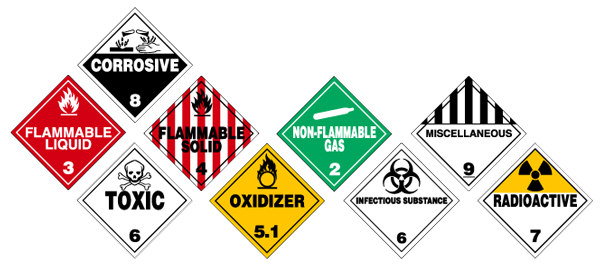

Specialists in the UK and International Movement of Dangerous Goods
t: (0)8700 116611
or contact us using our form below
Lithium Batteries
Legislation around the shipping of lithium batteries has become far more rigorous in recent years and it’s important that you understand whether the lithium batteries you are shipping are classed as dangerous goods. Typical UN numbers relating to lithium batteries are UN3480, UN3481, UN3090 and UN3091.
Lithium metal and lithium alloy batteries are generally primary, non-rechargeable, batteries that have lithium metal or lithium compounds as an anode. Lithium metal batteries are generally used to power devices such as watches, calculators, cameras, temperature data loggers, car key fobs, defibrillators.
Lithium-ion batteries, or Li-ion batteries, and lithium polymer batteries are a secondary rechargeable battery. Lithium-ion batteries are generally used to power devices such as mobile telephones, laptop computers, tablets, power tools, e-bikes.
Any lithium batteries packed by themselves, i.e. not contained in or packed with equipment, are forbidden for transport as cargo on passenger aircraft and can only fly on cargo-only aircraft.
Most lithium batteries are classified as dangerous goods for transport, however there are various special provisions that negate large sections of the regulations, deeming them non-hazardous specifically for transport by road. These regulations are complex and therefore, we can advise on the correct definitions for your specific products.
As a general rule of thumb, if the lithium batteries you are shipping have a UN number, then they will be classed as dangerous goods for transport.
There are typically 4 UN numbers that are affected:
UN3480 Lithium ion batteries
UN3481 Lithium ion batteries contained in equipment
UN3481 Lithium ion batteries packed with equipment
UN3090 Lithium metal batteries
UN3091 Lithium metal batteries contained in equipment
UN3091 Lithium metal batteries packed with equipment
Lithium ion and lithium metal batteries are considered so hazardous that they are forbidden to travel on passenger aircraft, they can only be sent by air on cargo freighters.

Enquiry
Enquiry
